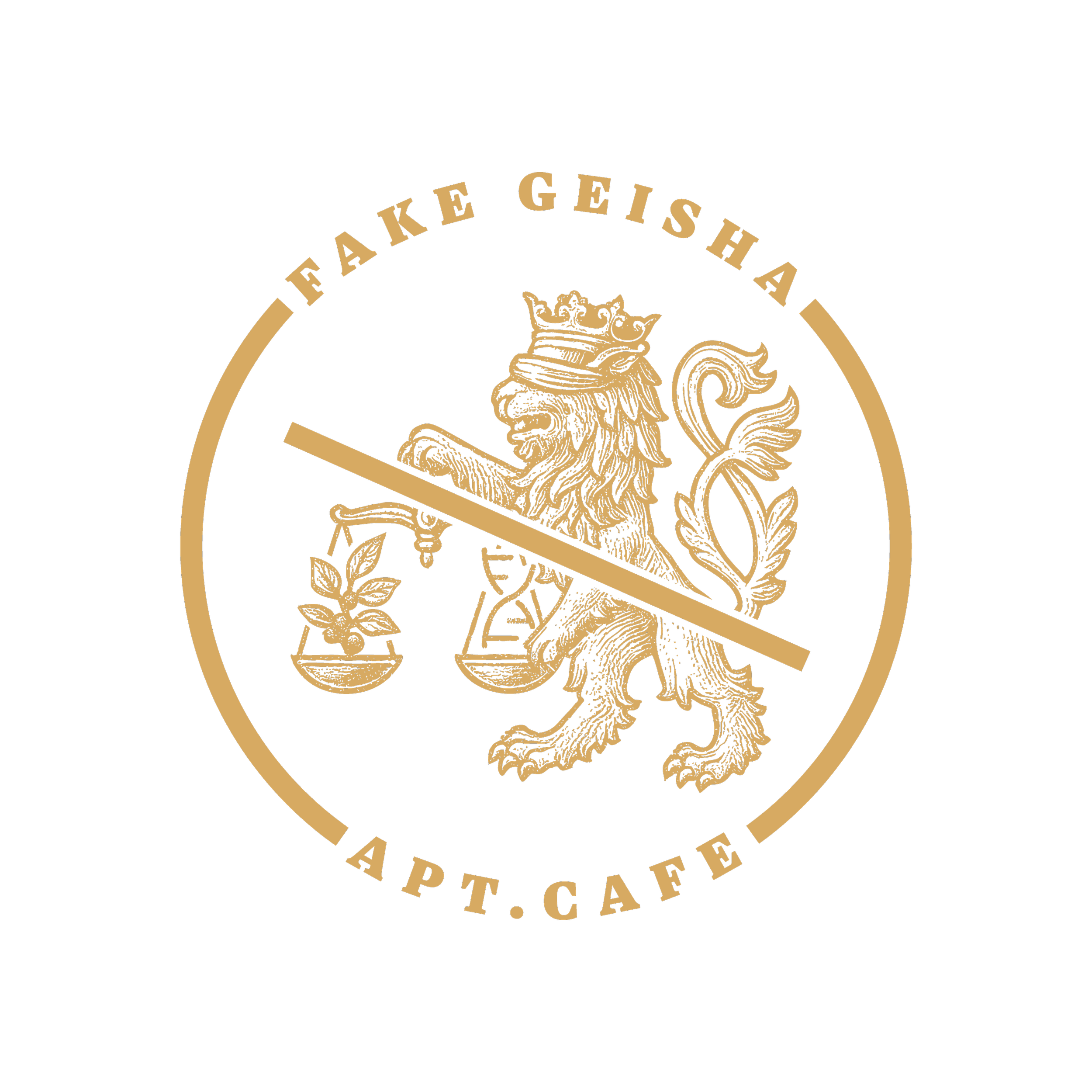FAKE GEISHA — Challenging the Cult of Purity
A collaboration between Apt.Cafe and the coffee research NGO, Advance.Coffee.
The lab confirmed what our senses already suspected:
“This sample has a genetic background of an Ethiopian landrace. Some alleles are common with Geisha. It might derive from original Geisha after some controlled or uncontrolled cross-pollination.”
Not pure Geisha — just a little too Ethiopian, a little too untamed in its lineage.
And maybe all the better for it.
There is such richness in Ethiopian profiles still to be explored; Geisha is only one among many.
Advance.Coffee has been running genetic analyses on numerous samples presented as Geisha — and most have failed the test.
Nature, it turns out, is never truly pure. Cross-pollination is the rule, not the exception.
We’ve even found famous “Geishas” that proved to be Sarchimors wearing borrowed names — hybrids, infusions, or simply wishful thinking.
Fake Geisha isn’t part of that deception.
This lot is a genuine cross-pollination between Geisha and other Ethiopian genetics — not pure, but proof that purity was never the point.
A clean, washed expression of extraordinary quality.
Evidence that what defines great coffee isn’t purity, but expression.
We roast these beautiful accidents — coffees that may not pass the DNA exam but excel in the cup.
They remind us that flavor doesn’t follow pedigrees, and that nature knows best.
Sometimes the fake tells a truer story than the genetically pure.
This sample has challenged our understanding of how much variety truly matters in coffee.
So we’re launching this Fake Geisha Series to celebrate coffees that fail the Geisha purity test yet still express the floral, fruity brilliance associated with it — an open invitation to question the idea of purity and let nature speak for itself.
Fake Geisha

